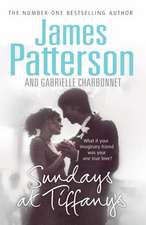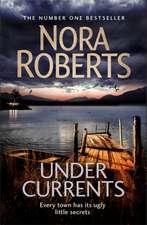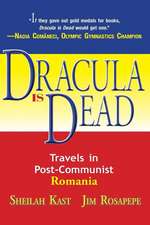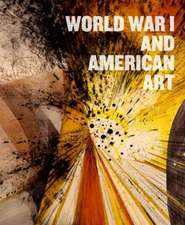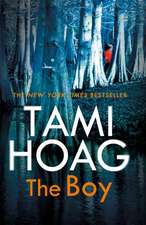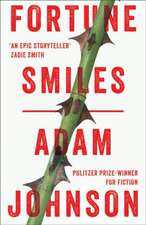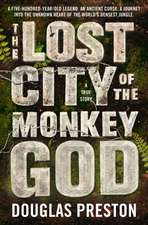The Song of Hiawatha
Autor Henry Wadsworth Longfellow Editat de G-Ph Ballinen Limba Engleză Paperback
| Toate formatele și edițiile | Preț | Express |
|---|---|---|
| Paperback (22) | 19.54 lei 3-5 săpt. | +4.66 lei 4-10 zile |
| Dover Publications – 28 feb 2006 | 19.54 lei 3-5 săpt. | +4.66 lei 4-10 zile |
| CREATESPACE – | 43.96 lei 3-5 săpt. | |
| CLASSIC COMIC STORE LTD – 8 oct 2017 | 50.40 lei 3-5 săpt. | +5.81 lei 4-10 zile |
| Mint Editions – 28 feb 2021 | 54.74 lei 3-5 săpt. | +8.41 lei 4-10 zile |
| CreateSpace Independent Publishing Platform – | 57.07 lei 3-5 săpt. | |
| CREATESPACE – | 60.95 lei 3-5 săpt. | |
| CREATESPACE – | 68.51 lei 3-5 săpt. | |
| – | 71.60 lei 3-5 săpt. | |
| DAVID GODINE – 5 mar 2008 | 102.69 lei 3-5 săpt. | |
| CREATESPACE – | 112.16 lei 3-5 săpt. | |
| – | 128.87 lei 3-5 săpt. | |
| Living Book Press – iul 2020 | 54.84 lei 6-8 săpt. | |
| Digireads.com – 6 feb 2020 | 60.36 lei 6-8 săpt. | |
| AZILOTH BOOKS – 2 iul 2016 | 68.44 lei 6-8 săpt. | |
| Lector House – 6 iun 2020 | 81.03 lei 6-8 săpt. | |
| 1st World Publishing – 22 iul 2013 | 81.91 lei 6-8 săpt. | |
| Lector House – 6 iun 2020 | 95.79 lei 6-8 săpt. | |
| LIGHTNING SOURCE INC – 16 mai 2018 | 113.63 lei 17-23 zile | |
| LIGHTNING SOURCE INC – 16 mai 2018 | 129.09 lei 17-23 zile | |
| Book Jungle – 12 mar 2008 | 138.69 lei 6-8 săpt. | |
| Start Classics – 26 mar 2024 | 142.86 lei 38-44 zile | |
| TREDITION CLASSICS – 31 oct 2011 | 187.87 lei 6-8 săpt. | |
| Hardback (4) | 75.81 lei 3-5 săpt. | +13.47 lei 4-10 zile |
| Mint Editions – 9 mar 2021 | 75.81 lei 3-5 săpt. | +13.47 lei 4-10 zile |
| Start Classics – 26 mar 2024 | 174.44 lei 38-44 zile | |
| 1st World Publishing – 22 iul 2013 | 176.02 lei 6-8 săpt. | |
| Akasha Classics – 11 sep 2008 | 184.12 lei 6-8 săpt. |
Preț: 128.87 lei
Nou
Puncte Express: 193
Preț estimativ în valută:
24.66€ • 25.65$ • 20.36£
24.66€ • 25.65$ • 20.36£
Carte disponibilă
Livrare economică 25 martie-08 aprilie
Preluare comenzi: 021 569.72.76
Specificații
ISBN-13: 9781542453202
ISBN-10: 1542453208
Pagini: 270
Dimensiuni: 152 x 229 x 14 mm
Greutate: 0.36 kg
ISBN-10: 1542453208
Pagini: 270
Dimensiuni: 152 x 229 x 14 mm
Greutate: 0.36 kg
Descriere
Descriere de la o altă ediție sau format:
The infectious rhythm of "The Song of Hiawatha" has drawn millions to the shores of Gitchee Gumee. Once there, they've stayed to hear about the young brave with the magic moccasins, who talks with animals and uses his supernatural gifts to bring peace and enlightenment to his people. This 1855 masterpiece combines romance and idealism in an idyllic natural setting.
The infectious rhythm of "The Song of Hiawatha" has drawn millions to the shores of Gitchee Gumee. Once there, they've stayed to hear about the young brave with the magic moccasins, who talks with animals and uses his supernatural gifts to bring peace and enlightenment to his people. This 1855 masterpiece combines romance and idealism in an idyllic natural setting.
Cuprins
Introduction
I. The Peace-Pipe
II. The Four Winds
III. Hiawatha's Childhood
IV. Hiawatha and Mudjekeewis
V. Hiawatha's Fasting
VI. Hiawath's Friends
VII. Hiawatha's Sailing
VIII. Hiawatha's Fishing
IX. Hiawatha and the Pearl-Feather
X. Hiawatha's Wooing
XI. Hiawatha's Wedding-Feast
XII. The Son of the Evening-Star
XIII. Blessing the Corn-Fields
XIV. Picture-Writing
XV. Hiawatha's Lamentation
XVI. Pau-Puk-Keewis
XVII. The Hunting of Pau-Puk-Keewis
XVIII. The Death of Kwasind
XIX. The Ghosts
XX. The Famine
XXI. The White Man's Foot
XXII. Hiawatha's Departure
Notă biografică
Henry Wadsworth Longfellow (February 27, 1807 - March 24, 1882) was an American poet and educator whose works include "Paul Revere's Ride", The Song of Hiawatha, and Evangeline. He was also the first American to translate Dante Alighieri's Divine Comedy and was one of the Fireside Poets from New England.
Longfellow was born in Portland, Maine, which was then still part of Massachusetts. He studied at Bowdoin College and became a professor at Bowdoin and later at Harvard College after spending time in Europe. His first major poetry collections were Voices of the Night (1839) and Ballads and Other Poems (1841). He retired from teaching in 1854 to focus on his writing, and he lived the remainder of his life in the Revolutionary War headquarters of George Washington in Cambridge, Massachusetts. His first wife Mary Potter died in 1835 after a miscarriage. His second wife Frances Appleton died in 1861 after sustaining burns when her dress caught fire. After her death, Longfellow had difficulty writing poetry for a time and focused on translating works from foreign languages. He died in 1882.
Longfellow wrote many lyric poems known for their musicality and often presenting stories of mythology and legend. He became the most popular American poet of his day and also had success overseas. He has been criticized by some, however, for imitating European styles and writing specifically for the masses.
Longfellow was born on February 27, 1807 to Stephen Longfellow and Zilpah (Wadsworth) Longfellow in Portland, Maine,[1] then a district of Massachusetts.[2] He grew up in what is now known as the Wadsworth-Longfellow House. His father was a lawyer, and his maternal grandfather was Peleg Wadsworth, a general in the American Revolutionary War and a Member of Congress.[3] His mother was descended from Richard Warren, a passenger on the Mayflower.[4] He was named after his mother's brother Henry Wadsworth, a Navy lieutenant who had died three years earlier at the Battle of Tripoli.[5] He was the second of eight children.[6]
Longfellow was descended from English colonists who settled in New England in the early 1600s.[7] They included Mayflower Pilgrims Richard Warren, William Brewster, and John and Priscilla Alden through their daughter Elizabeth Pabodie, the first child born in Plymouth Colony.[8]
Longfellow attended a dame school at the age of three and was enrolled by age six at the private Portland Academy. In his years there, he earned a reputation as being very studious and became fluent in Latin.[9] His mother encouraged his enthusiasm for reading and learning, introducing him to Robinson Crusoe and Don Quixote.[10] He published his first poem in the Portland Gazette on November 17, 1820, a patriotic and historical four-stanza poem called "The Battle of Lovell's Pond".[11] He studied at the Portland Academy until age 14. He spent much of his summers as a child at his grandfather Peleg's farm in Hiram, Maine.



